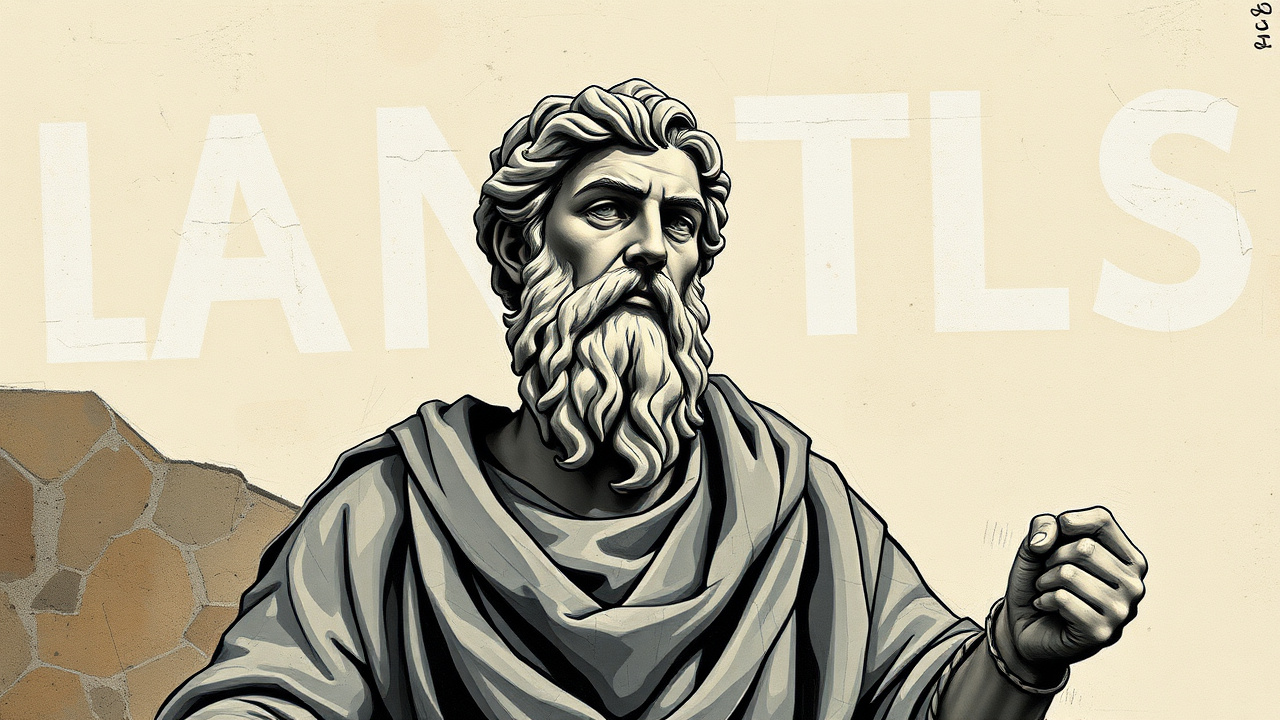Introduction: The Modern Maze of Life
In today’s fast-paced world, many of us find ourselves feeling lost at some point in our lives. This sensation can stem from various sources, including rapid changes in our personal and professional landscapes. It’s essential to recognize that this feeling is a common human experience, often accompanied by confusion and doubt about our path forward.
Many people believe that being lost signifies failure or a lack of direction. However, this perspective may not encompass the full reality. According to stoic philosophy, uncertainty can serve as a valuable opportunity for reflection and self-discovery. By understanding the roots of our feelings, we can navigate through them more effectively.
The Stoic View on Life’s Challenges
Stoicism teaches us that challenges are not inherently negative. Instead, they are external events that can help us cultivate virtues such as wisdom, courage, and resilience. When feeling lost, it’s vital to look inward rather than focusing solely on external circumstances. Embracing stoic principles can aid in transforming feelings of confusion into clarity and purpose.
By practicing acceptance, we learn to detach our self-worth from our external situations. This shift in perspective allows us to face life’s challenges with a more balanced mindset, ultimately leading to greater fulfillment and understanding of ourselves.
Recognizing the Signs of Feeling Lost
Feeling lost can manifest in various ways, including a sense of disconnection from one’s goals, feelings of anxiety, or a lack of motivation. Recognizing these signs is the first step toward understanding and addressing this pervasive feeling. It’s crucial to approach these feelings with curiosity rather than self-judgment.
When you sense that you’re drifting without direction, take a moment to pause and reflect. Consider what aspects of your life may contribute to these feelings. Self-reflection and journaling can be powerful tools to help clarify your thoughts and reveal underlying emotions.
Practical Steps for Navigation
To regain a sense of direction, there are several practical steps you can take. First, defining your values and priorities can provide a solid foundation for decision-making. What truly matters to you? Understanding your core values can illuminate the path you should focus on moving forward.
Secondly, seek out mentors and communities that resonate with your aspirations. Surrounding yourself with supportive individuals can foster a sense of belonging and clarity, enabling you to explore new possibilities.
Embracing Change and Uncertainty
Change is a constant in life, and embracing it can ultimately lead to personal growth. Understanding that feeling lost may be a temporary phase can empower you to approach life with a more open mindset. Instead of resisting change, consider what new opportunities might arise from your current situation.
Developing a practice of mindfulness can help ground you during uncertain times. Mindfulness encourages presence and acceptance, allowing you to observe your thoughts without becoming overwhelmed by them. In practicing mindfulness, you may find insights that guide you back toward purpose.
Conclusion: The Path Forward
Feeling lost in life is not a definitive state but rather a transient experience that many undergo. By utilizing stoic principles and engaging in self-reflection, you can navigate through these feelings and emerge stronger and more self-aware. Remember, being lost can be an invitation to explore the depths of your identity and purpose.
For additional insights, consider watching our latest video on YouTube, titled “Feeling Lost in Life is Not What You Think It Is,” where we delve deeper into this topic. Find it here:
FAQ
What does it mean to feel lost in life?
Feeling lost in life often signifies a lack of direction or clarity regarding one’s goals or purpose. This can be triggered by various life changes or challenges, leading to feelings of uncertainty and confusion about the future.
How can stoicism help me when I feel lost?
Stoicism offers a framework for understanding and accepting life’s challenges. It emphasizes the importance of focusing on what we can control and accepting what we cannot, which can provide peace of mind during turbulent times.
What are some practical steps to regain direction?
To regain direction, consider identifying your core values, seeking advice from mentors, and engaging in mindfulness practices. These actions can promote self-awareness and provide clarity on your goals.
Can feeling lost lead to personal growth?
Yes, feeling lost can serve as a turning point for personal growth. It often prompts individuals to reevaluate their lives, leading to deeper self-discovery and a renewed sense of purpose as they pursue their passions.
How can I practice mindfulness in my daily life?
Practicing mindfulness can involve activities such as meditation, journaling, or simply taking quiet moments to reflect throughout your day. These practices can help you remain present and grounded, making it easier to manage feelings of being lost.
Watch the Video:


Leave a Reply